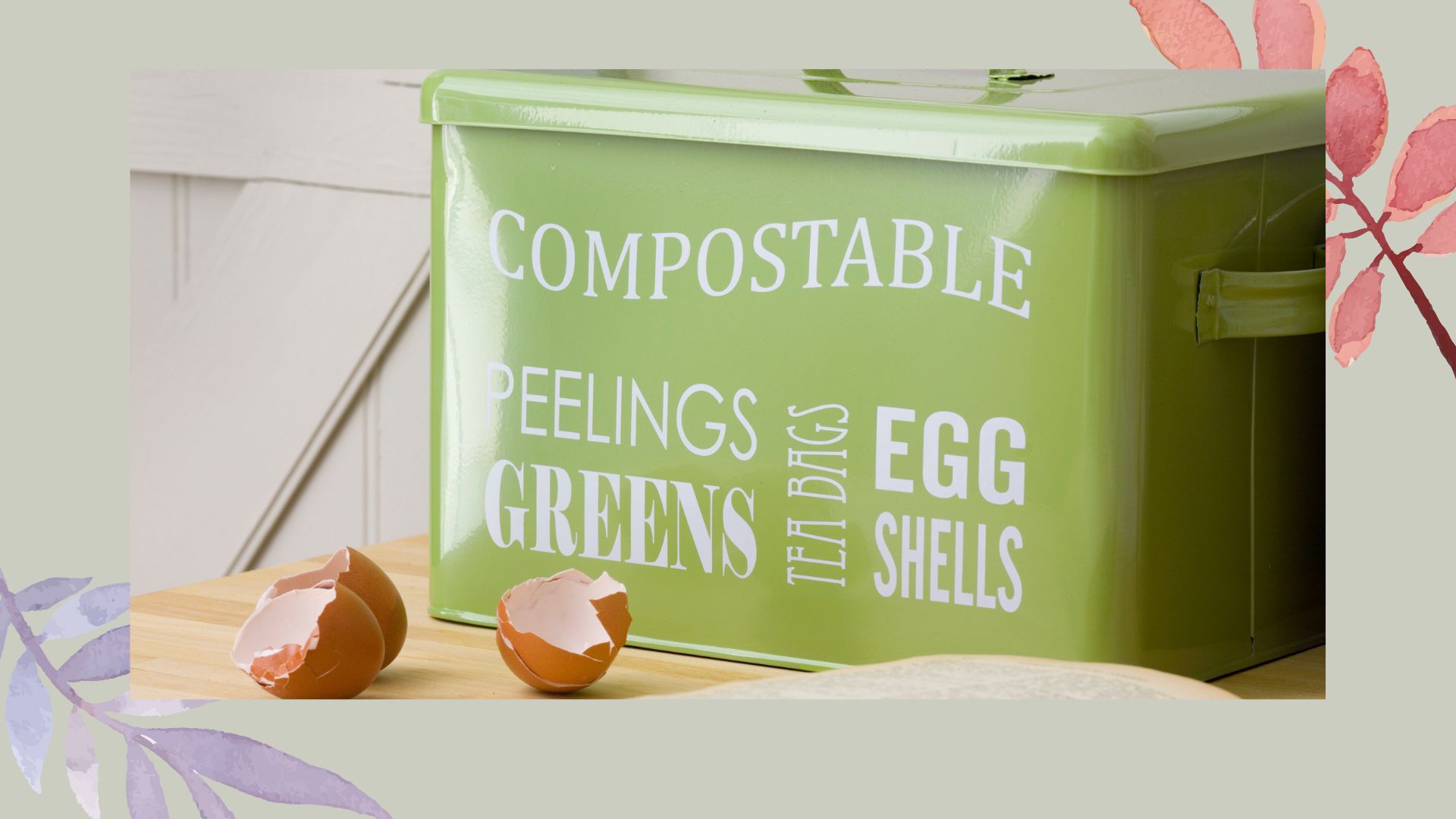
Composting is an affordable and easy way to deliver much-needed nutrients to your garden beds, borders and potted plants while reducing garden and household waste.
Many pre-made compost products are available on the market, but there's no greater feeling than adopting a sustainable gardening idea to make your own compost at home.
Best of all, not only will it reduce your garden and food waste, allowing you to use banana peels in your garden and eggshells for gardening goodness, but it will also save you money on buying bags of readymade compost – plus it’s super easy to start a DIY compost heap at home.
How to make compost at home
"Composting, a process of turning waste materials from your home and garden into nutrient-rich soil, is free and rewarding," says gardening expert Mark Lane.
Making compost at home couldn't be easier but there are a few essential things to know before you start, and some tools to help you do the job successfully.
- Kitchen compost caddy
- Compost bin
- Garden fork or spade
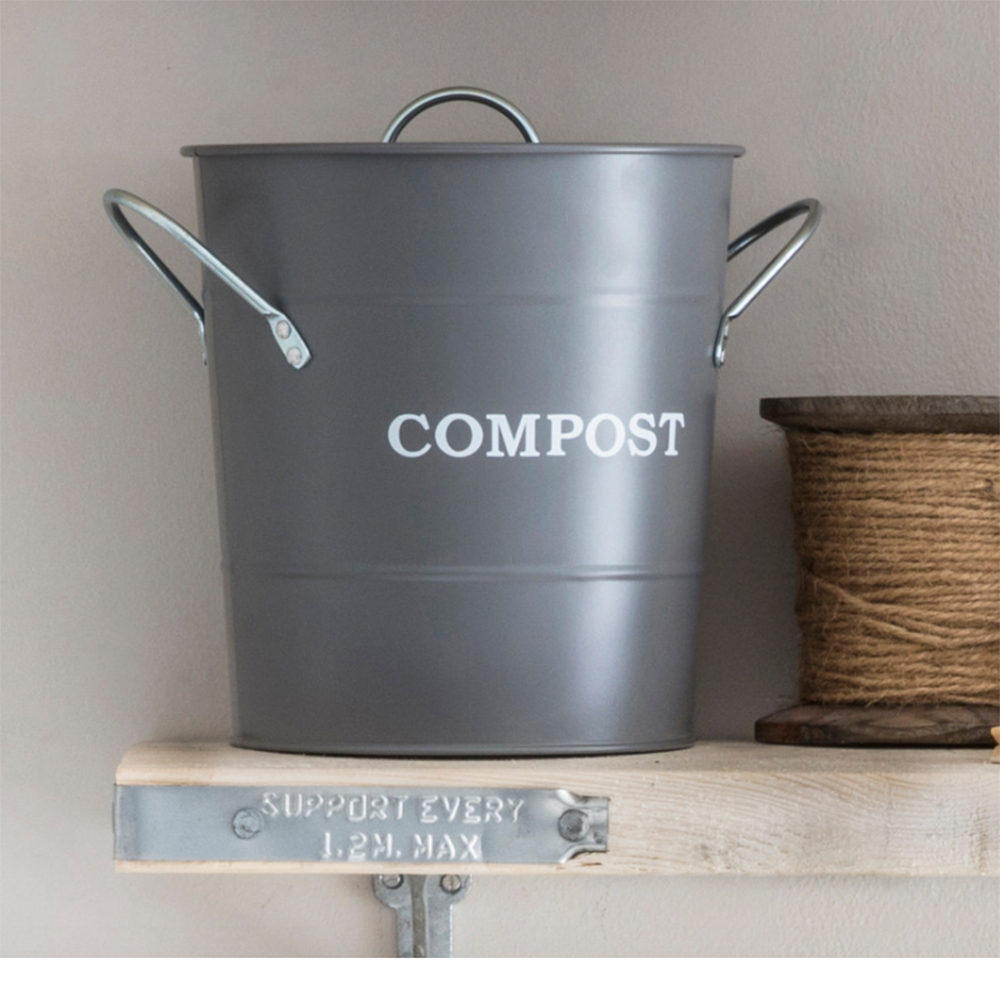
RRP: £22 | This stylish charcoal-coloured compost caddy is the chic way to collect your indoor food waste, to keep it separate from your other non-compost waste.
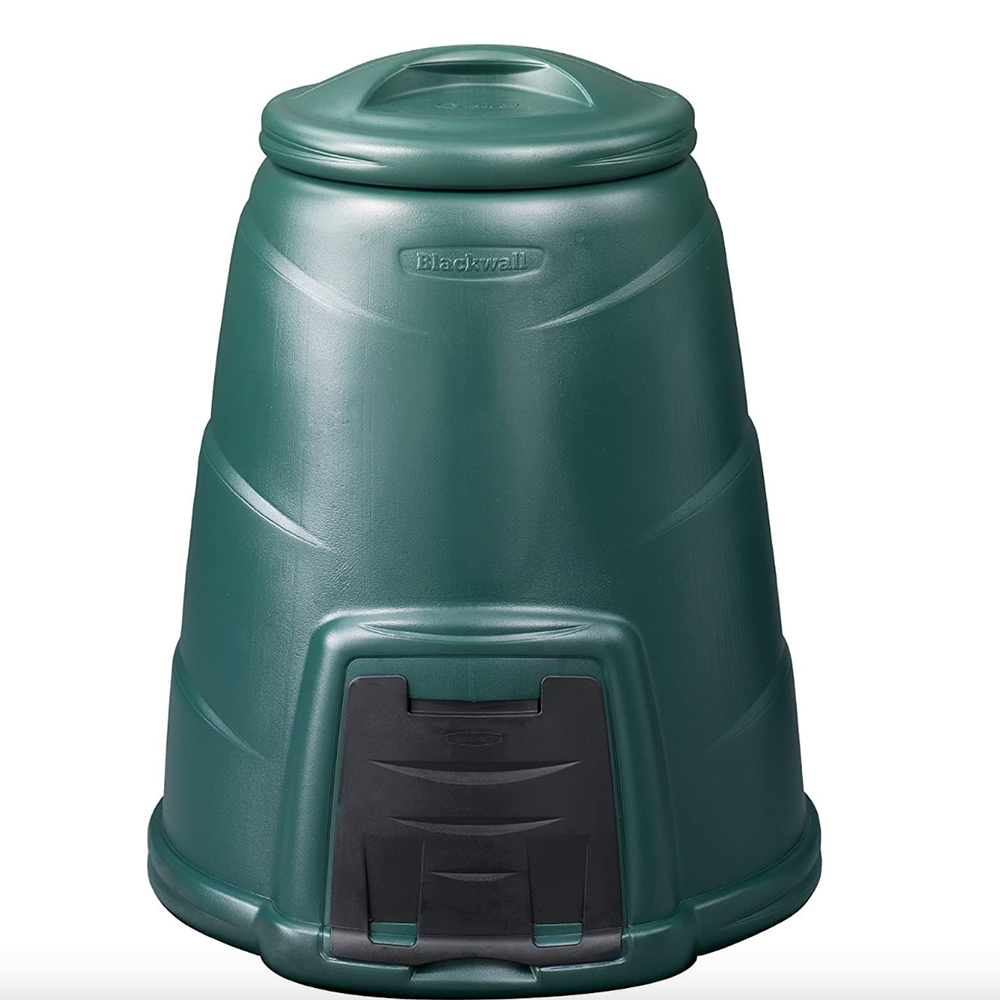
RRP: £48 | This generous bin is a popular choice of design for those looking for a bin solution to hide the compost out of sight. With a waterproof lid and easy access hatch this design is highly practical.
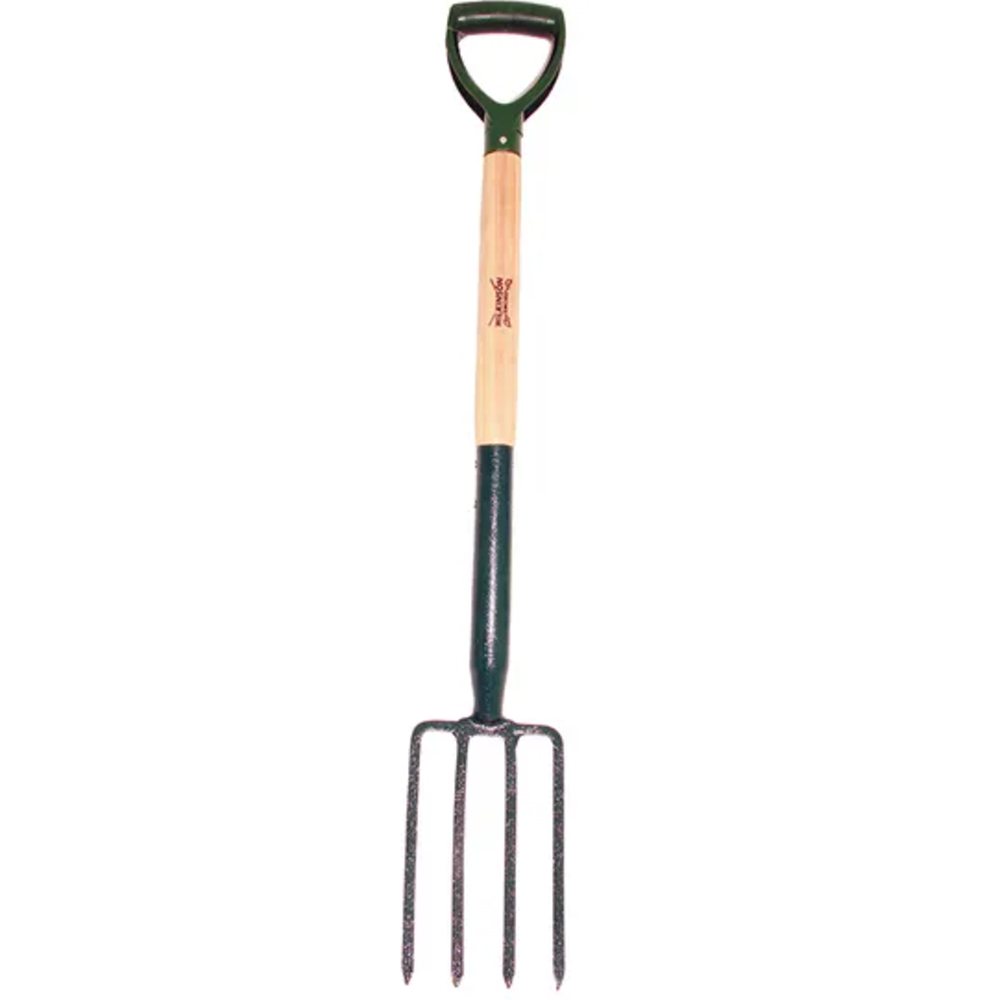
RRP: £19.99 | sturdy and easy to use, this Wilkinson Sword carbon steel garden fork is ideal for lifting and turning a compost pile – but it's also handy for a multitude of other gardening tasks.
1. Decide on a compost heap or bin
Essentially there are two different options for composting at home, you can create an open compost heap or choose to keep a compost bin. Both methods produce exceptional compost at home – it's more a preference of how it is presented in your garden.
"First, decide if you want to use a compost bin or simply create a compost pile," says Chris Bonnett, founder of GardeningExpress.co.uk. "Bins are a great way to keep the compost and garden looking neat but there is also nothing wrong with creating a pile in a designated area of your garden."
2. Choose a site for your compost
Whichever method of composting you adopt the right location will determine successful composting. "An important decision will be where to put your new compost heap," explains gardening expert Fiona Jenkins.
"It should be on a level site where there is good soil drainage to allow for excess water to seep away. Many people build a dedicated compost bin but this is not necessary for the waste material to break down and a compost heap works just as well. Having the heap on a soil base gives worms direct access to the material."
"Ideally, you’ll want to keep your compost in an area that’s easily accessible with partial or full shade to prevent it from getting too moist," Chris adds.
Fiona goes on to explain: "Having it in a semi-shaded spot helps the microorganisms to function better as the temperature is likely to remain consistent rather than fluctuating as it will if the heap is sited in an exposed location."
3. Add a balanced blend of waste
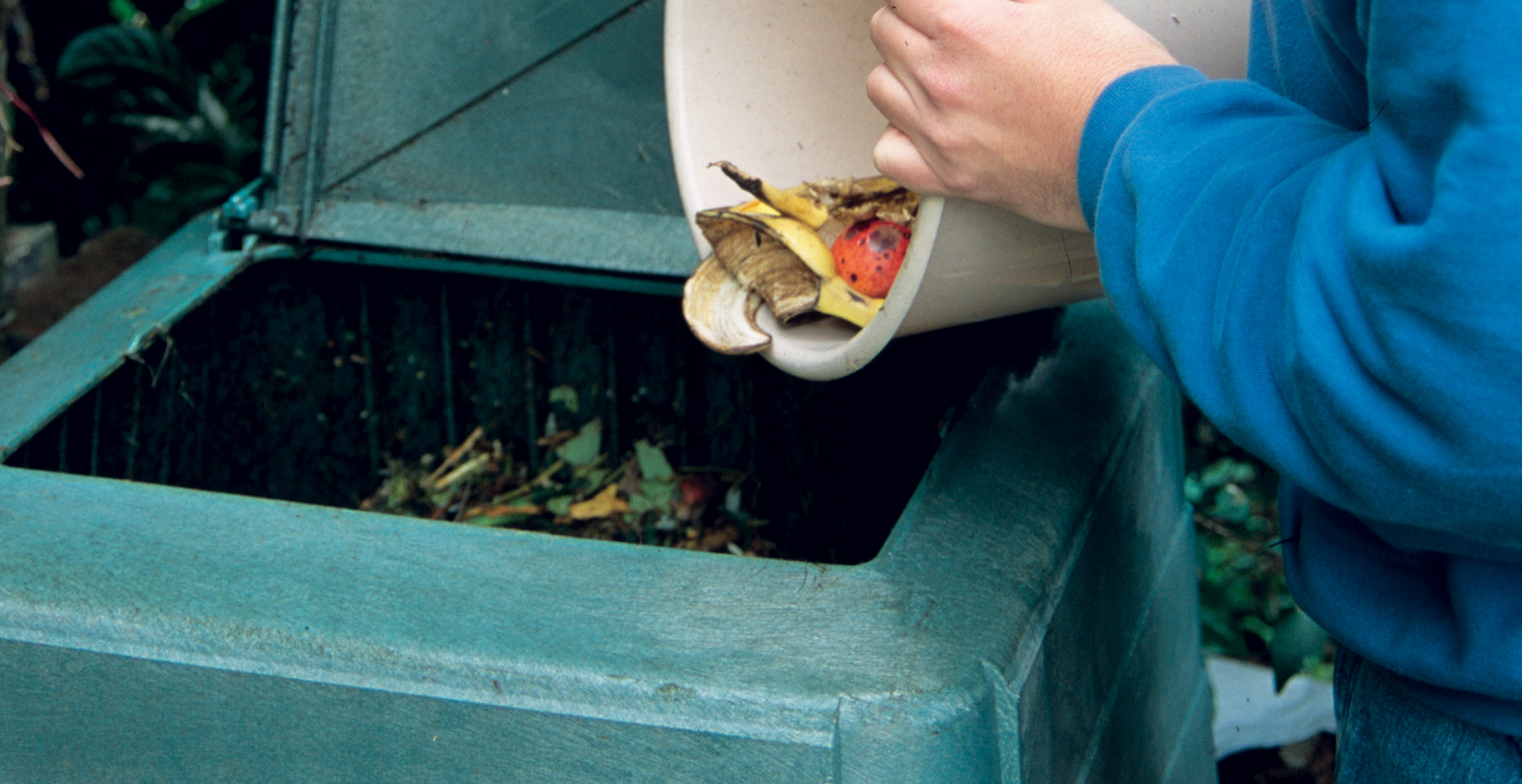
Many often wonder what can be composted and what should be avoided, as well as the ideal mix of ‘green’ and ‘brown’ materials – we recommend a 50% mix to avoid one type dominating.
"Green waste material comprises grass clippings, leaves, annual weeds, vegetable cuttings and peelings from the kitchen," Mark explains. "In contrast, brown materials are things like woody stems, twigs, composted bark, cardboard from all those delivery boxes, egg boxes, toilet roll tubes, coffee grounds, tea bags and newspapers (shredded)."
This is when using tea bags in your garden, using coffee grounds in your garden and using orange peel in your garden helps to reduce household waste.
"Getting the balance between the materials is crucial," says Chris, "ideally you want more brown materials than green. Think 25% green and 75% brown. This is a good rough guide."
Mark's top tip: "Ideally, shred or cut up all material so it can be composted more quickly by anaerobic action. If you have a lawn mower, lay your garden waste onto the lawn and run it over them. This will shred the materials for you, with relative ease."
4. Avoid certain waste matter
In order for your compost to be beneficial it's imperative to avoid certain waste matter, that not only won't enrich the soil but could invite lots of nasties into your garden instead.
"It's crucial to avoid composting certain materials," Mark warns. "Cooked food, meat, fish, bones, human excrement, glossy magazine pages and diseased cuttings should never go into your compost bin. These can attract vermin and introduce diseases to the compost, which can then spread to your plants when you use the compost in your garden."
"Don't add chemically treated plants to your compost pile, the chemicals can be transferred to your soil," adds Chris. " Also avoid large branches and stems. These will take much longer to break down and can slow down the overall composting process."
5. Turn your compost pile
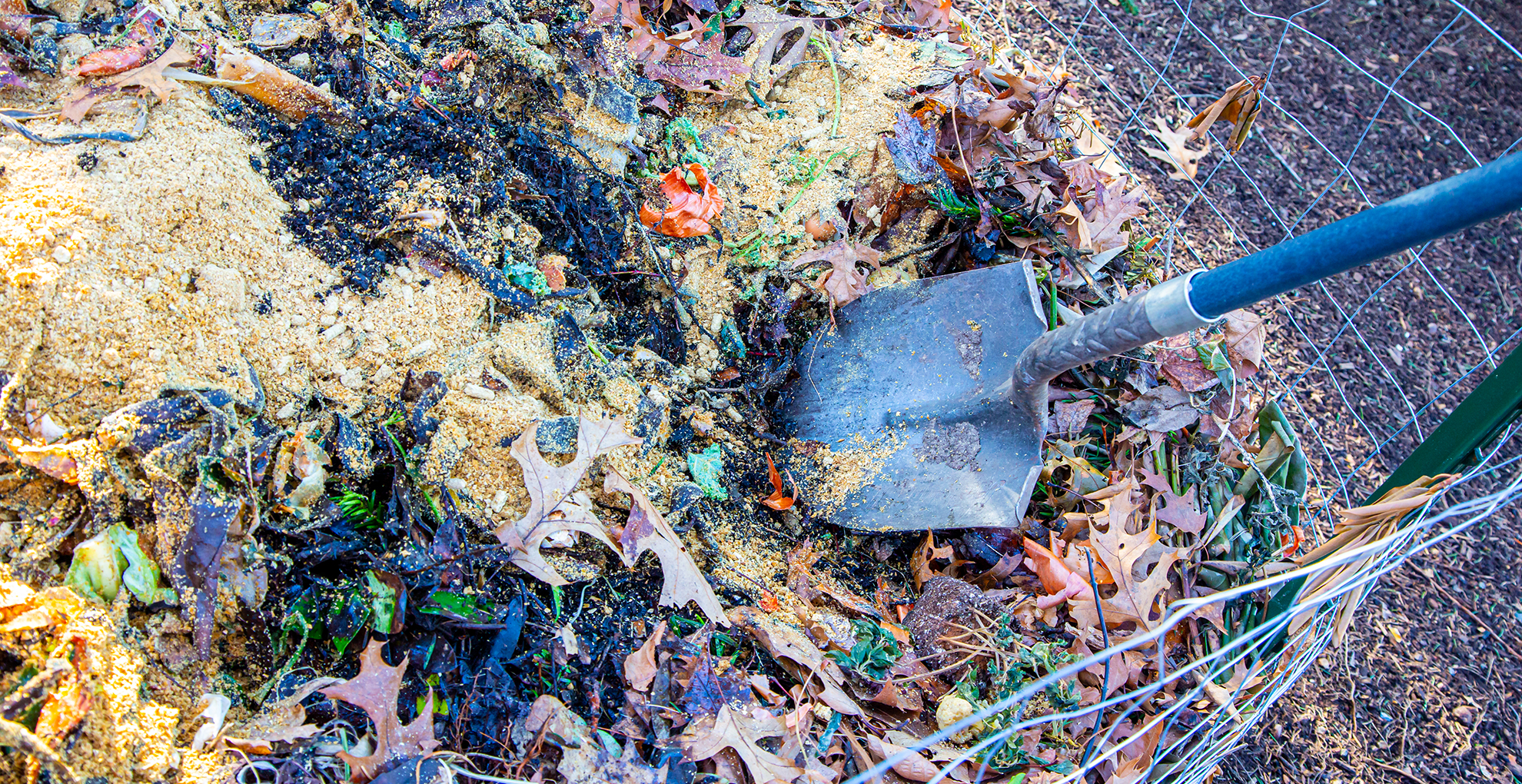
Turning your compost is an essential part of the process to ensure it gets enough air, similar to why you aerate a lawn. We know this from taking note of Monty Don's composting tip.
"Turn the pile regularly," Chris advises. "Mixing the compost regularly is important as it adds air. Without this, the compost can become too moist which will slow down the process."
To do this simply use a garden fork or spade, depending on the size of your compost pile, and lift areas and mix them to allow air to flow through and break up any clumps that might be too soggy.
FAQs
How long does it take to make compost at home?
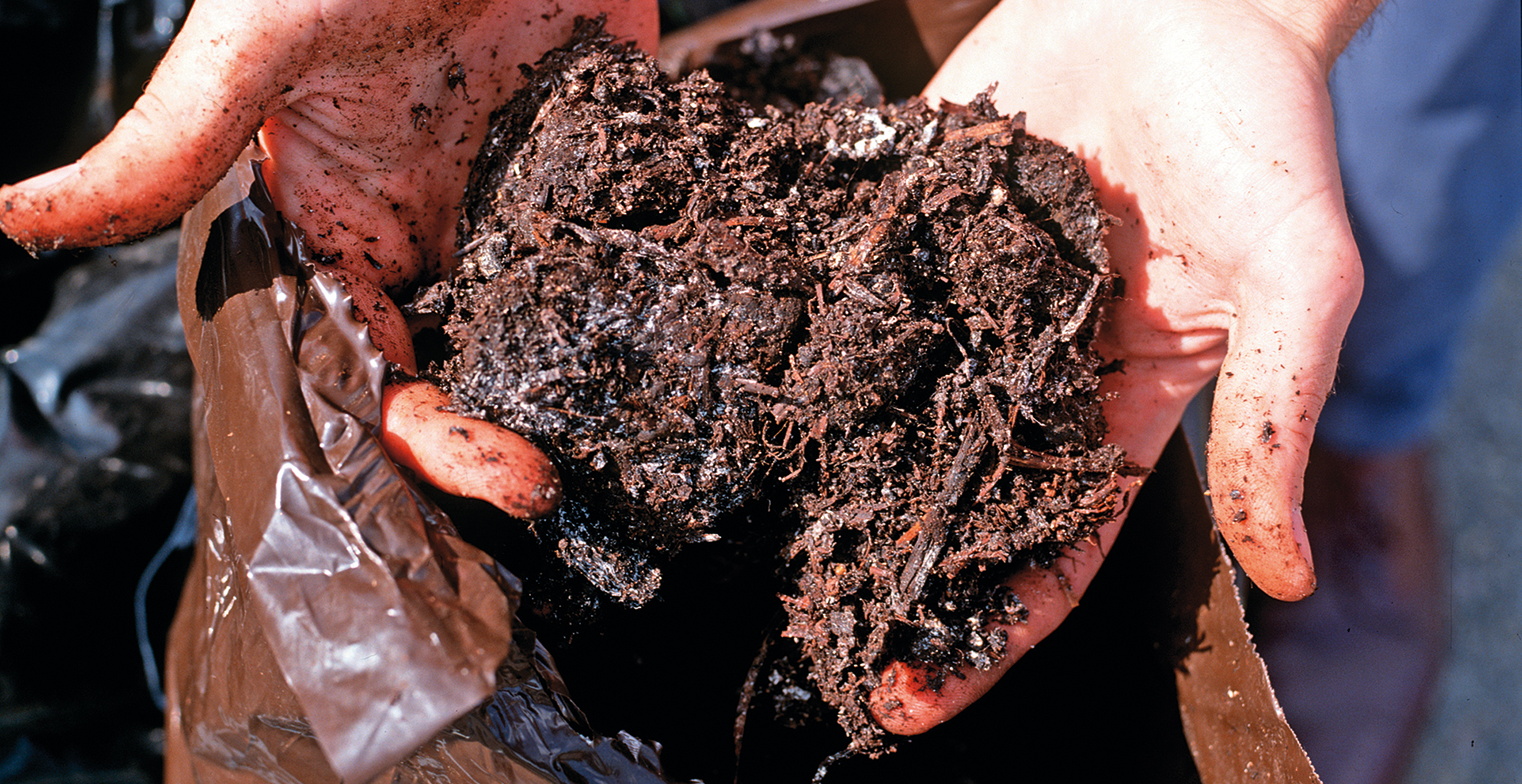
The million dollar question, how long does it take to make your own compost at home. in truth it can be anywhere from as little as two weeks to a few months, it all depends on the material you use and the conditions. but if you follow the expert advice above you can create a nutrient-rich compost in just a few weeks. You'll know when the compost is ready because the waste matter will have cooled and broken down into brown soil-like particles.
Why are worms so important for making compost?
"Worms are one of the most important parts of your compost heap as they break down the content along with bacteria and fungi," Fiona explains. "All of these garden helpers contribute to the composting process and love the dark, warm and moist environment."
When to start a compost heap
"You can start a compost heap at any time of year but probably the best time is spring when everything is beginning to grow and the garden is producing a lot of waste," Fiona explains. "As you will have a lot of green waste in spring it’s important to also add brown waste for a balanced mix."







